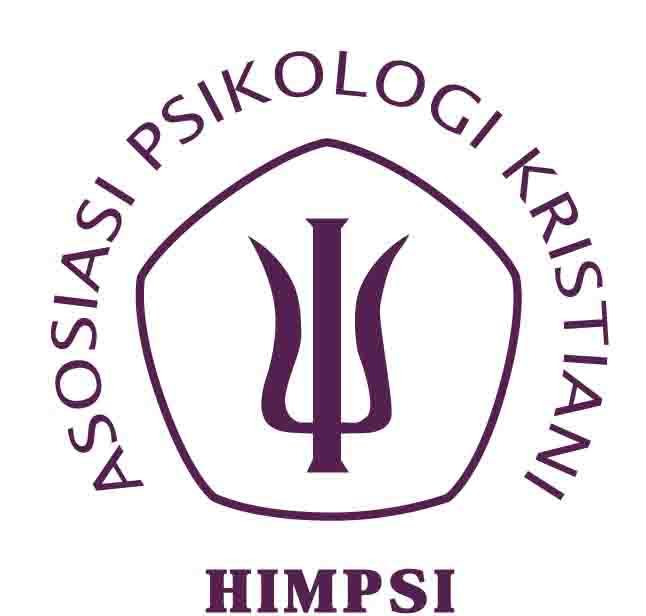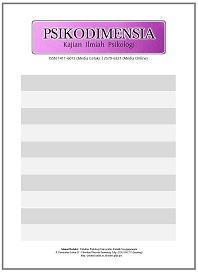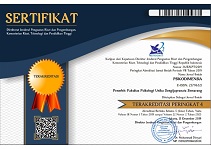Rey Auditory Verbal Learning Test of University Students
Abstract
Keywords
Full Text:
PDFReferences
Akgun, S., & Ciarrochi, J. (2003). Learned resourcefulness moderates the relationship between academic stress and academic performance. Educational Psychology, 23 (3), 287 – 294.
Bezdicek, O., Stepankova, H., Moták, L., Axelrod, B.N., Woodard, J. L., Preiss, M., Nikolai, T., Ružicka, E., & Poreh, A. (2014). Czech version of Rey Auditory Verbal Learning Test: Normative data. Aging, Neuropsychology, and Cognition, 21 (6), 693 – 721.
Carbia, C. , Cadaveira, F., Caamano-Isorna, F., Rodriguez-Holguin, S., & Corral, M. (2017). Binge Drinking during Adolescence and Young Adulthood with associated with deficits in verbal episodic memory. Plos One, 12(2), 1-17. DOI:10.1371/journal.pone.0171393
Colom. R., Escorial, S., Shih, P.C., & Privado, J. (2007). Fluid intelligence, memory span, and temperament difficulties predict academic performance of young adolescents. Personality and Individual Differences, 42, 1503 – 1514.
Correia, A.F. & Osorio, I.C. (2013). The Rey Auditory-Verbal Learning Test: Normative Data Developed for the Venezuelan Population, Archives of Clinician Psychology, 29, 206-215
Deary, I. J., Strand, S., Smith, P., & Fernandes, C. (2007). Intelligence and Educational Attainment. Intelligence, 35, 13 – 21.
Denhart, S. (2018). A Comparison of the Rey Auditory-Verbal Learning Test and the Wechsler Scales. (A Specialty Study). Murray State University, Murray.
Dunlosky, J., Rawson, K.A., Marsh, E.J., Nathan, M.J., & Willingham, D.T. (2013). Improving Students’ Learning with Effective Learning Techniques: Promising Directions from Cognitive and Educational Psychology. Psychological Science in the Public Interest, 14(1), 4–58. DOI: 10.1177/1529100612453266
Fichman, H.C.,Dias, L.B.T., Fernandes, C.S., Lourenço, R., Caramelli, P., & Nitrini, R. (2010). Normative data and construct validity of the Rey Auditory Verbal Learning Test in a Brazilian elderly population. Psychology & Neuroscience, 3(1), 79-84. DOI: 10.3922/j.psns.2010.1.010
Hair, N.L., Hanson, J.L., Wolfe, B.L., & Pollak, S.D. (2015). Association of Child Poverty, Brain Development, and Academic Achievement. JAMA Pediatrics, 169 (9), 822 – 829.
Ishak, I., Jufri, N.F., Lubis, L.H., Saat, N.M., Omar, B., Arlin, R.,.& Mohamed, N. (2011). The Study of Working Memory And Academic Performance of Faculty Health Science Student, Universiti Kebangsaan Malaysia. Prosiding Kongres Pengajaran & Pembelajaran UKM201, 17 – 20 Desember 2011, di Universiti Kebangsaan Malaysia. https://www.researchgate.net/publication/256986249
Kessel, R. P.C., & Hendriks, M. P.H. (2016). Neuropsychological Assessment. In Howard S. Friedman (Editor in Chief), Encyclopedia of Mental Health, 2nd Edition, Vol. 3 (pp. 197 – 201). Waltham, MA: Academic Press.
Khosrafi_Fard, E., Kellor, J.L., Bagheban, A.A., & Keith, R.W (2016). Comparison of the Rey Auditory Verbal Learning Test (RAVLT) and Digit Test among Typically Achieving and Gifted Students. Iran Journal of Child Neurology, 10(2):26-37.
Laidra, K., Pullmann, H., & Allik, J. (2007). Personality and intelligence as predictors of academic achievement: A cross-sectional study from elementary to secondary school. Personality and Individual Differences, 42, 441 – 451.
Lavoie, M., Bherer, L., Joubert, S., Gagnon, J-F., Blanchet, S., Rouleau, I., Macoir, J., & Hudon, C. (2018). Normative data for the Rey Auditory Learning Test in the older French-Quebec population. The Clinical Psychologist, 1 – 14. https://doi.org/10.1080/13854046.2018.1429670
Magalhaes, S.S. & Hamdan, A.C. (2010). The Rey Auditory Verbal Learning Test: normative data for the Brazilian population and analysis of the influence of demographic variables. Psychology & Neuroscience, 3(1), 85 – 91. DOI: 10.3922/j.psns.2010.1.011
Manna,S., Pal, A., & Dhara, P.C. (2016). Variation of cognitive skill on age and sex of primary school children of West Bengal. J.Bio.Innov 5(6), 939-951
Moradi, E., Hallikanen, I., Hänninen, T., Tohka, J., & Alzheimer’s Disease Neuroimaging Initiative. (2017). Rey’s Auditory Verbal Learning Test Scores can be predicted from whole brain MRI in Alzheimer’s disease. NeuroImage: Clinical, 3, 415 – 477.
Munjir, N., Othman, Z., Zakaria, R., Shafin, N., Hussain, N. A., Desa, A. M., & Ahmad, A. H. (2015). Equivalence and practice effect of alternate the forms for Malay version of Auditory Verbal Learning Test (MAVLT). EXCLI Journal, 14, 801 – 808.
Neblina, C. (2012). Construct and Criterion Validity of The Rey Auditory-Verbal Learning Test-Spanish Version in Adults with Traumatic Brain Injury. (Thesis). University of Nevada, Las Vegas.
Ormrod, J.E., Saklofske, D.H., Schwean, V.L., Harrison, G.L., & Andrews, J.J. (2006). Principles of Educational Psychology (Canadian Edition). Toronto, Canada: Pearson Education, Inc.
Paštrnák, M., Šulcová, K., Dorazilová, A., & Rodriguez, M. (2018). Alternative forms parallel to the Czech versions of Rey Auditory Verbal Learning Test, Complex Figure Test and Verbal Fluency. Cesk Slov Neurol N, 81/ 114(1): 73– 80. doi: 10.14735/amcsnn201873.
Pinel, P.J., & Barnes, S.J. (2019). Biopsikologi Edisi Kesepuluh (Alihbahasa: Helly Prajitno Soetjipto & Sri Mulyani Soetjipto). Yogyakarta: Pustaka Pelajar.
Rusk, N., & Rothbaum, F. (2010). From stress to learning: Attachment Theory meets Goal Orientation Theory. Review of General Psychology, 14 (1), 31 – 43.
Ruth, B., Becker, N., Romeyke, S., Schafer, S., Dominick, F., & Spinath, F. M. (2015). Intelligence and School-grades: A Meta-analysis. Intelligence, 53, 118 – 137. http://dx.doi.org/10.1016/j.intell.2015.09.002
Stetkiewicz-Lewandowicz, A., & Borkowska, A. (2013). Neuropsychological tests in a group of patients with ischemic heart disease. Psychiatria Polska, 47(1), 5-14.
Teruya, L.C., Ortiz, K.Z., & Minett, TSC. (2009). Performance of normal adults on Rey auditory Learning Test. A pilot study. Arq Neuropsiquiatr;67(2-A):224-228.
Vakil, E., Greenstein, Y., & Blachstein, H. (2010). Normative data for composite scores for children and adults derived from the Rey Auditory Verbal Learning Test. The Clinical Neuropsychologist, 24: 662–677. DOI: 10.1080
DOI: https://doi.org/10.24167/psidim.v18i1.1740
Print ISSN : 1411-6073 | online ISSN : 2579-6321 View My Stats

This work is licensed under a Creative Commons Attribution 4.0 International License.




















